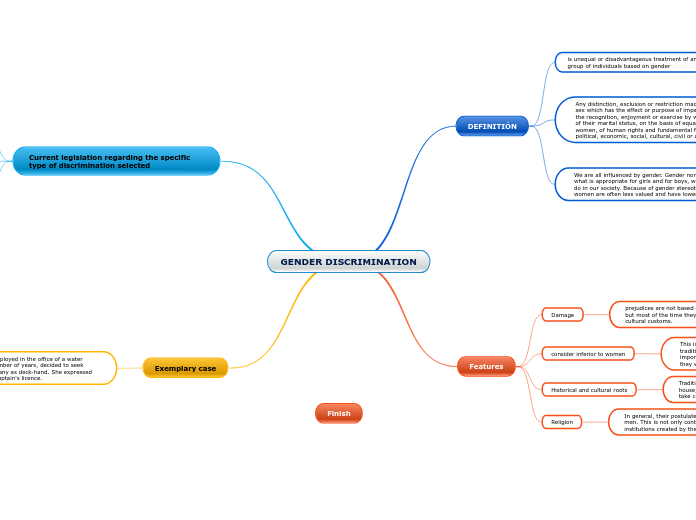GENDER DISCRIMINATION
DEFINITIÓN
is unequal or disadvantageous treatment of an individual or group of individuals based on gender
Sexual harassment is a form of illegal gender discrimination.
Any distinction, exclusion or restriction made on the basis of sex which has the effect or purpose of impairing or nullifying the recognition, enjoyment or exercise by women, irrespective of their marital status, on the basis of equality of men and women, of human rights and fundamental freedoms in the political, economic, social, cultural, civil or any other field
The following is a list of discriminatory acts you may come across among your peers, at home, at school or in the workplace
Sexual harassment, catcalling
Harassment and catcalling on the street are prime examples of how women’s right to walk freely around their environment is restricted. The normalisation of harassment and inaction of bystanders and authorities perpetuate this form of discrimination and limit women’s freedom.
Gender stereotypes at school and work
These stereotypes can often bleed out into school and work, where girls are less likely to be encouraged into science and technology subjects or leadership roles, due to the perceived ‘male nature’ of these pursuits.
We are all influenced by gender. Gender norms or rules tell us what is appropriate for girls and for boys, women and men to do in our society. Because of gender stereotypes, girls and women are often less valued and have lower social status.
Features
Damage
prejudices are not based on any logical or scientific criteria, but most of the time they are born of ignorance, fear or cultural customs.
In the case of women, there is a lot of prejudice in everyday life. Thus, it is relatively common to hear that they drive cars worse than men, or that they are not able to perform some heavy tasks.
consider inferior to women
This is coupled with a conception of society in which the tasks traditionally carried out by men are considered more important. Women have been rejected for many jobs thinking they would not be able to do them.
Historical and cultural roots
Tradition pointed out that the place of the woman was the house; it was the one who had to take care of housework, take care of the husband and raise the children.
For their part, men were destined to occupy public space, to evolving laws, often more advanced than society itself, has been fundamental for the situation to begin to change
Religion
In general, their postulates put women below in the value of men. This is not only contemplated in his texts, but also in the institutions created by the religious
Current legislation regarding the specific type of discrimination selected
law 1257 of 2008
decree 1930 of 2013
Decree 154 of 2010
Exemplary case
A woman who had been employed in the office of a water transport business for a number of years, decided to seek employment with the company as deck-hand. She expressed long-term plans to gain a captain's licence.
She alleged she was made to feel unwelcome by her male co-workers who commented to her that the work would be too heavy and dirty for her. The male co-workers conceded, over time, that she was able to perform the duties of the position as well as they could.
Because of a downturn in business the company was forced to reduce work hours for deckhands. As a consequence, her rostered water-time was shortened resulting in loss of hours, loss of training, and career opportunities.
She alleged her complaints to the company about unfair treatment by favouring male staff in the rostering times were ignored. In her view, the apparent necessity to reduce hours was unfairly distributed between her and her male colleagues. Her chosen career to aspire to captaincy, she intimated, was seriously jeopardised.
The complaint was settled by conciliation with payment of compensation, a written apology, and agreement that the company would undertake training on anti-discrimination.
